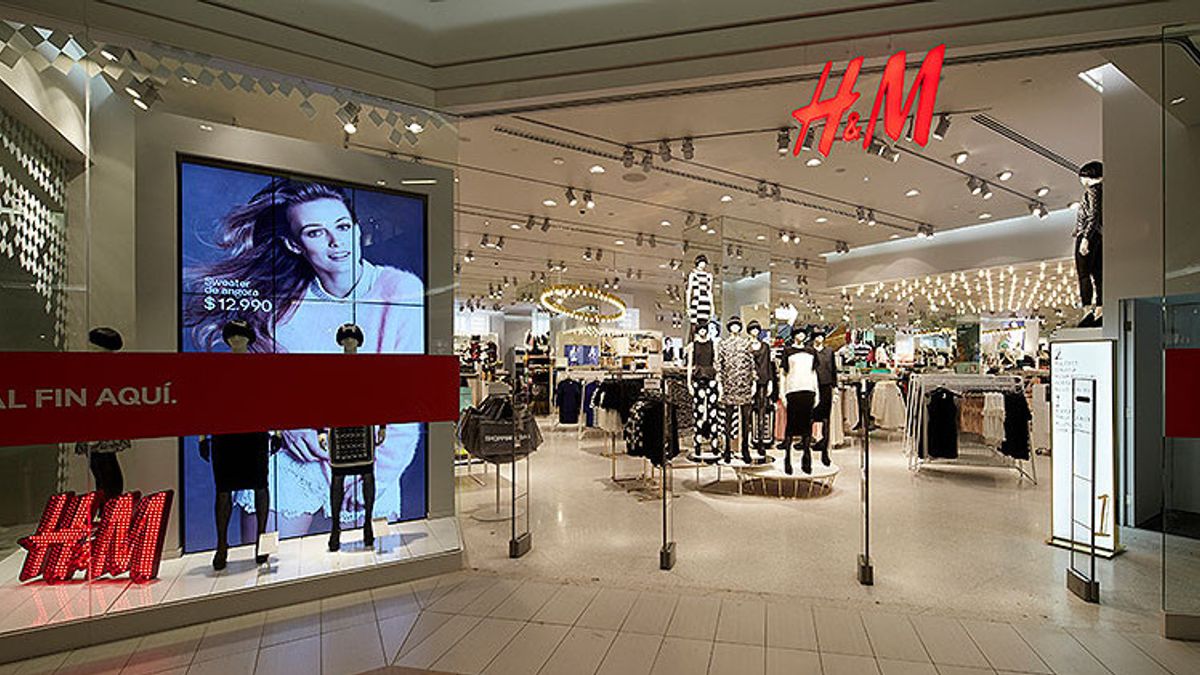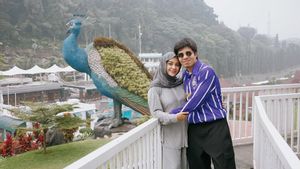JAKARTA - Swedish fashion retailer H&M faces a potential boycott in China after last year expressing deep concern over reports of forced labor in Xinjiang, which caused a stir on social media this week.
In a statement posted on the company's website, which was posted in September, following increased global scrutiny of the inclusion of Uighur Muslims in forced labor in Xinjiang.
H&M said it was concerned about reports from civil society organizations and the media, which included allegations of forced labor and discrimination against religious minorities in Xinjiang. H&M also said it had stopped buying cotton from farmers in the region.
More than half a year later, after Western nations rush to impose sanctions on China over Xinjiang, H&M is reaping an online reaction from Chinese consumers. This was after comments from the Communist Youth League, an influential organization, emerged.
“Want to make money in China while spreading false rumors and boycotting Xinjiang cotton? Wishful thinking! "the group said in a post, echoing one of the People's Liberation Army statements calling H&M's attitude 'stupid and arrogant', reported The New York Times.
It is known that Britain, Canada, the United States and the European Union on Monday this week announced sanctions against a number of Chinese officials in connection with the so-called human rights violations in Xinjiang.
Roughly one in five cotton garments sold globally contain cotton or yarn from the region, where authorities have used programs of forced labor and mass detention to reshape as many as one million Uighurs, Kazakhs and other Muslim minorities who are mostly Muslim. Muslims, become an example of the work system under the Communist Party.
Huang Xuan, a Chinese actor who has a menswear contract with H&M, posted a statement saying he would quit the deal. He is against slander, rumors and any attempt to discredit China.
Singer and actress Victoria Song, who had endorsed H&M, also published a statement that she no longer has any relationship with H&M. He also emphasized the national interest above all else.
As of Wednesday evening, at least three of China's major e-commerce platforms - Pinduoduo, Jingdong and Tmall, had removed H&M from search results and pulled its products from sales. This underscores the pressure foreign companies have to face when trying to 'interfere' in China's political affairs, sovereignty and human rights record.
Meanwhile, state television station CCTV criticized H&M and called it a mistake in making calculations.
"Miscalculation to try to play the role of the wrong hero. H&M will definitely pay a heavy price for his wrong actions," said CCTV.
H&M China immediately responded to this 'attack' through a post on the Sina Weibo microblogging site, saying the company did not represent any political position.
"H&M Group has always respected Chinese consumers. We are committed to long-term investment and development in China," read the statement.
To note, H&M is the second largest fashion retailer in the world by sales, after Inditex, owner of Zara. China is the fourth largest market for H&M products.
The English, Chinese, Japanese, Arabic, and French versions are automatically generated by the AI. So there may still be inaccuracies in translating, please always see Indonesian as our main language. (system supported by DigitalSiber.id)













